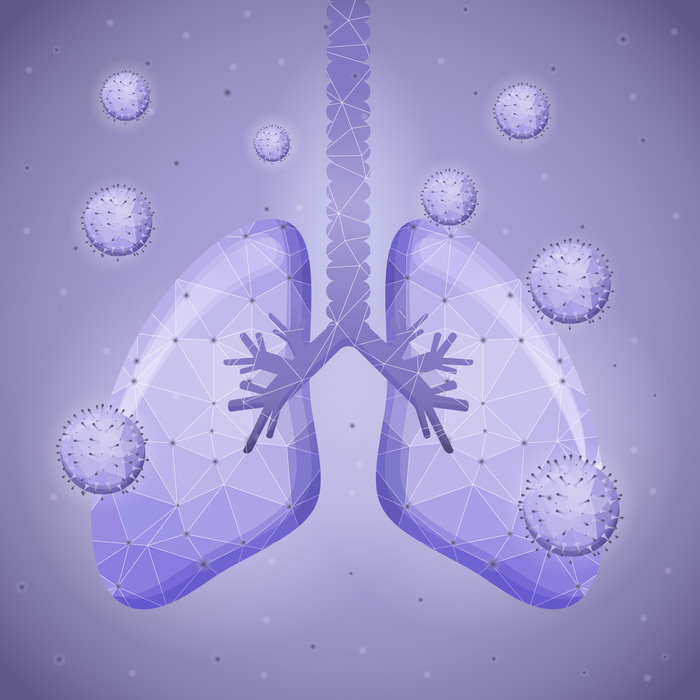A Harvard study proved that artificial intelligence can detect pancreatic cancer three years before diagnosis (symbolic image). © IMAGO/imageBROKER/Oleksandr Latkun
With the help of artificial intelligence, researchers were able to diagnose pancreatic cancer three years earlier. The potential of the technology is great.
Cambridge (USA) – Pancreatic cancer is one of the deadliest cancers in the world. The disease can often only be discovered late, so valuable time passes. In a study published on Monday (8 May) in collaboration with the University of Copenhagen, researchers at the renowned Harvard University were able to prove that artificial intelligence can help in the early detection of this type of cancer. This would make earlier treatment possible and save lives.
Cancer: Artificial intelligence identifies patients at highest risk
According to the study, artificial intelligence (AI) succeeded in identifying people with the highest risk of pancreatic cancer from a data set – up to three years before they were actually diagnosed. That's according to a report from Harvard Medical School on Monday. According to the study, AI-based screening of the population could be helpful in finding people at increased risk of disease, making treatment more efficient.
"One of the most important decisions that physicians face on a daily basis is who is at high risk for a disease and who would benefit from further testing, which can also mean more invasive and expensive procedures that carry their own risks," study coordinator Chris Sander explained the background. "An AI tool that can focus on those at highest risk of pancreatic cancer, who could benefit the most from further testing, could go a long way in improving clinical decision-making," the scientist continued.
About the study
The study "A deep learning algorithm to predict risk of pancreatic cancer from disease trajectories" by researchers led by Davide Placido from Copenhagen University and Bo Zuan from Harvard University was published in the journal nature medicine on May 8, 2023.
Around 44 percent of people diagnosed with pancreatic cancer in the early stages survive five years after diagnosis, according to the Harvard report. However, only about one in eight patients (about twelve percent, as data show) receives a diagnosis at this early stage. If the tumor is not detected so early and can continue to grow, the chance of survival drops to only two to nine percent, according to an earlier study from 2014.
Symptoms that may indicate pancreatic cancer
- Pain in the upper stream, some of which can also radiate to the back
- Nausea, vomiting, diarrhea, loss of appetite
- Unwanted weight loss
- Similar symptoms are also known from other diseases, such as a gastrointestinal infection, and therefore do not necessarily have to be related to pancreatic cancer
- A feeling of pressure in the upper abdomen, diabetes, a chronically inflamed pancreas, weakness or jaundice can also indicate pancreatic cancer
A feeling of pressure in the Oberbach can be one of the early warning signs of pancreatic cancer (symbolic image). © IMAGO / agefotostock / staras
0
Also Read
Passengers vote by show of hands – video shows how woman is thrown out of plane
READ
Devastating storm in Italy causes landslide in South Tyrol: rock thunders on the terrace of kindergarten
READ
Fatal accident in Italy: Coach crashes on the Amalfi Coast – and falls meters deep into a house
READ
Ambulance blocked: Man dies during climate strike – "Last generation" admits mistakes
READ
Extreme price for Italy vacation: Hotel demands more than 23,000 euros – travelers frightened
READ
Fancy a voyage of discovery?
My Area
Cancer research: Researchers trained AI with data from a period of 41 years
For the study, the researchers trained different versions of the AI model with the data sets from 6.2 million patient files spanning the observation period of 41 years and originating from Denmark's national health system. Around 24,000 of these patients developed pancreatic cancer over time. The algorithm developed by the researchers recognized patterns in the data sets that indicated a later development of this type of cancer. The researchers then fed the most accurate algorithm of the various versions of their AI model as a test with a new data set of three million patient records from the USA.
For example, artificial intelligence was able to predict that there would be an increased risk of pancreatic cancer within the next three years if patients had received diagnoses such as anemia, type 2 diabetes, gallstones or complained of problems with the gastrointestinal tract. People with pancreatitis had a high probability of developing pancreatic cancer within the next two years. Although these symptoms and diseases are not a clear indication of the future development of the type of cancer, they can serve as a clue for a more detailed analysis.






